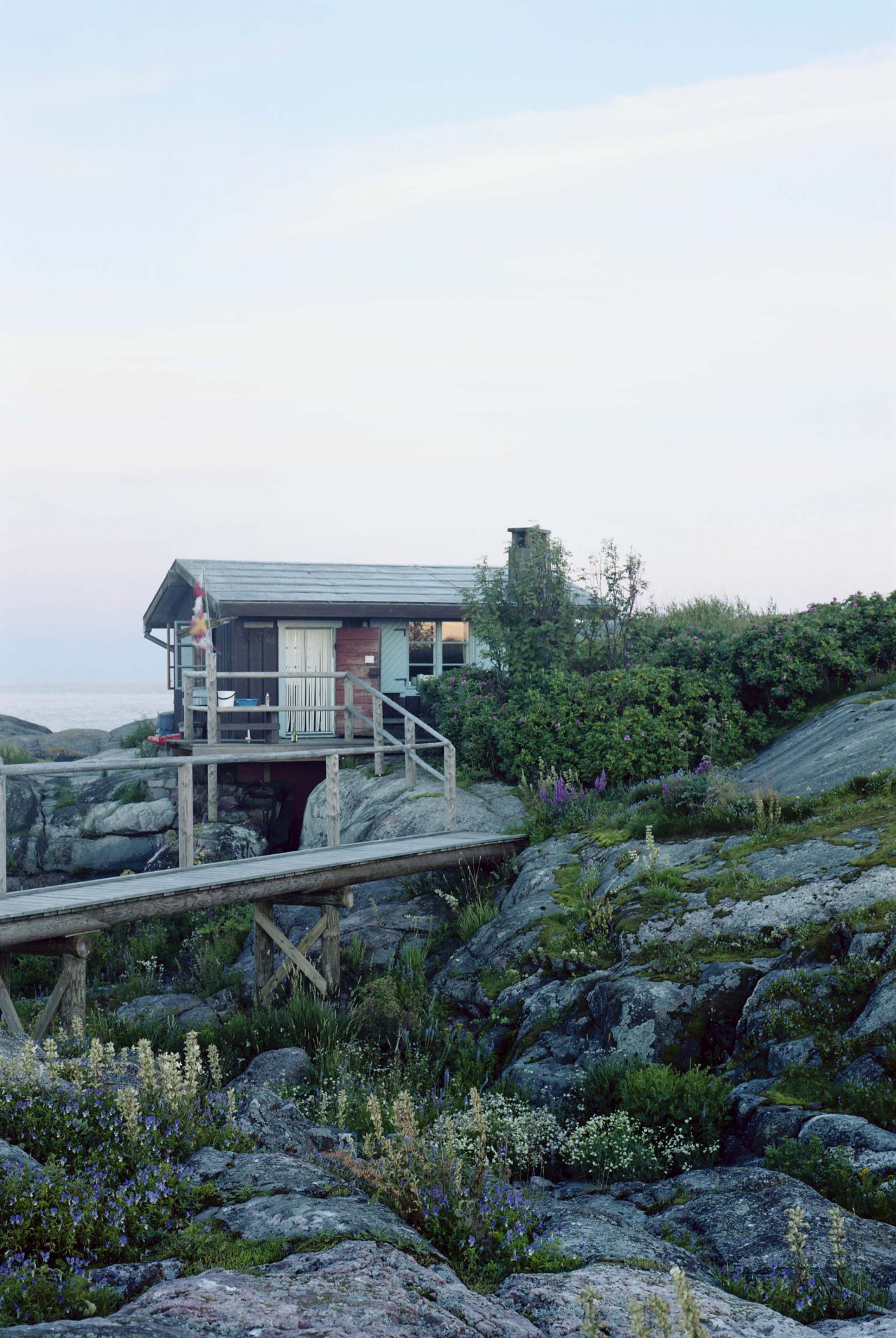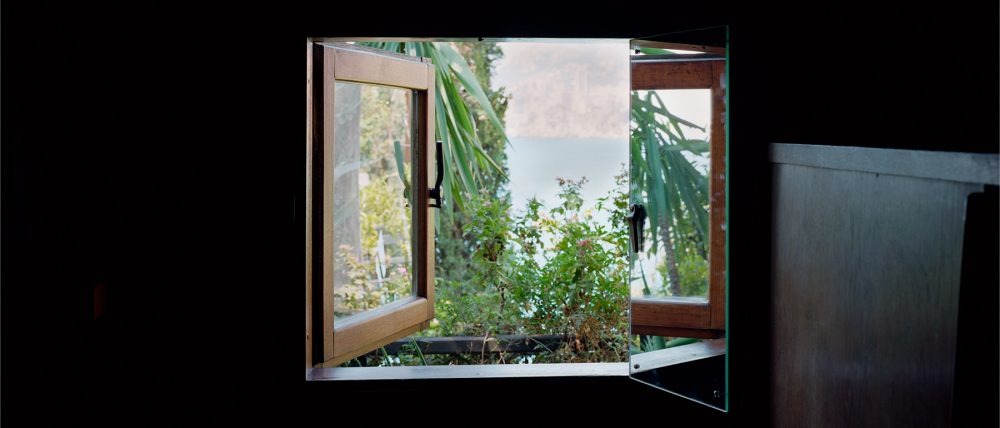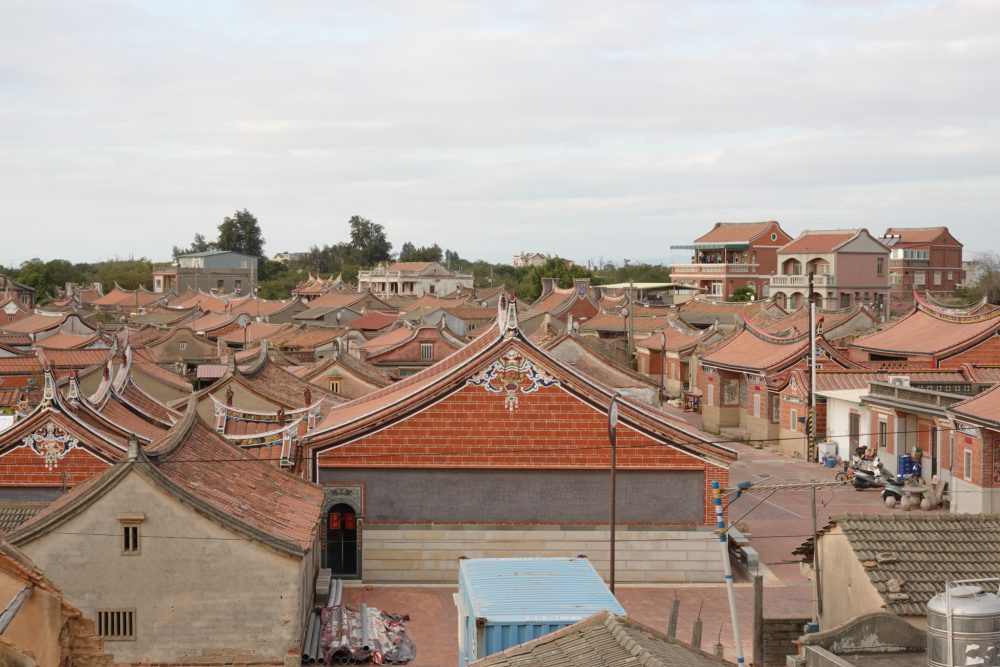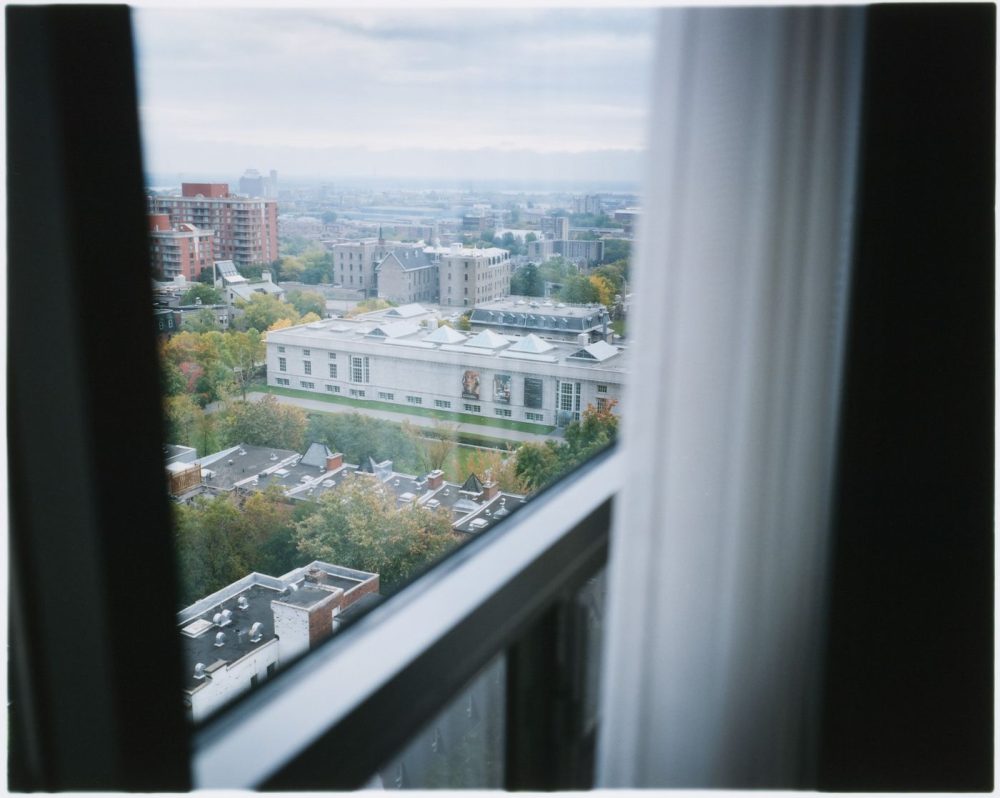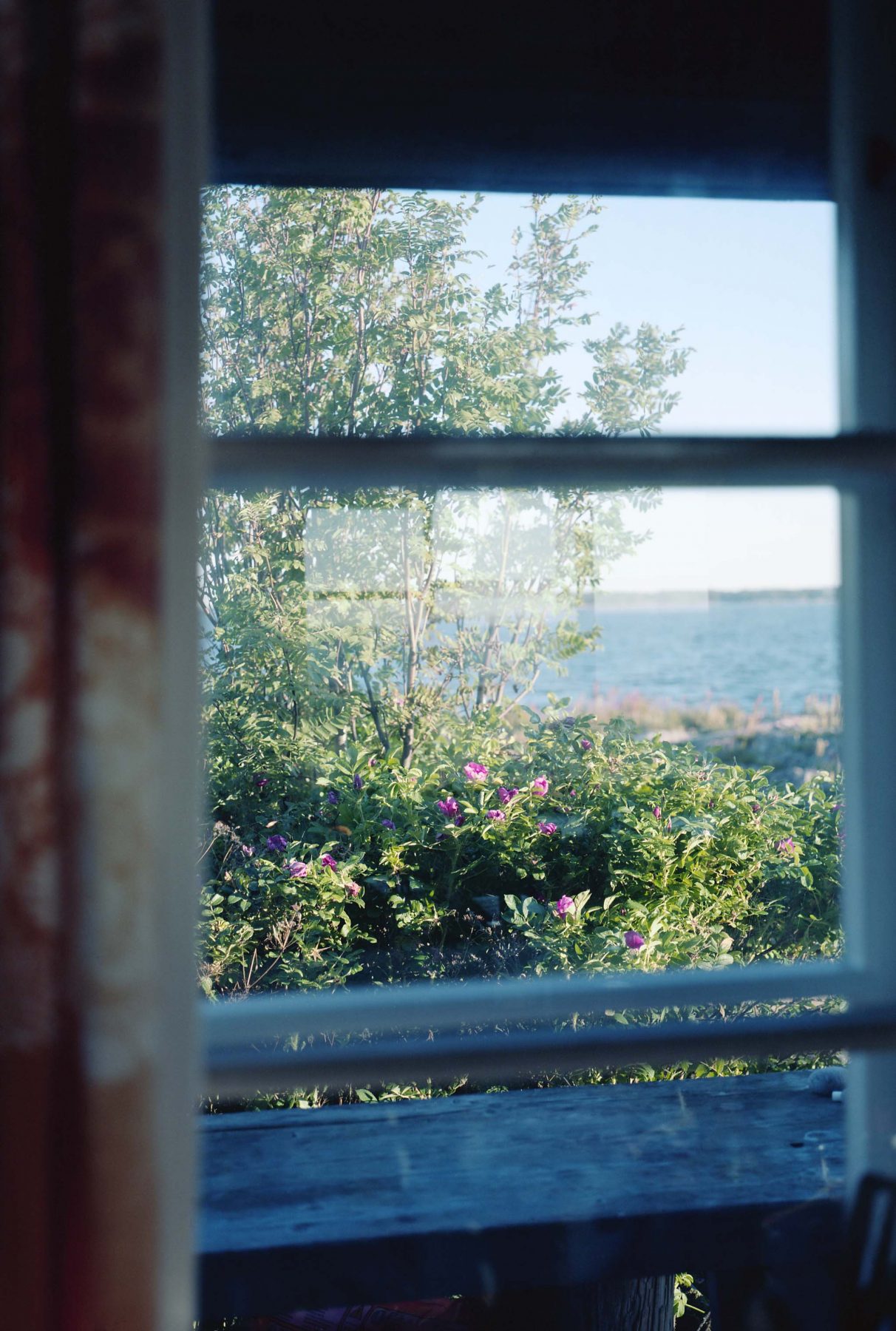
Series Windows and Photography
Tove Jansson’s Window
06 Sep 2016
- Keywords
- Art
- Columns
- Literature
- Photography
Photographer Takashi Homma introduces some compelling windows spliced between his own photos and text. Part 1 of this series delivers five photos – one of which is never before seen – plus an exclusive sketch from Homma’s latest photo collection, A song for windows, which pays homage to author Tove Jansson.
This lodge is located on a small island among a group of islands just off the coast of Finland; it is also where Tove Jansson, author of the famous Moomin series, spent her summers for more than twenty years. The uninhabited island can be circled by foot in about 7 minutes; the lodge is 4 m in length with a diameter 5.45 m. It is 2.2 m high.
All four walls are adorned with windows 112 cm wide and 114 cm high. There is just enough space for about three people to lay side-by-side.
-

The scale of the lodge
The sun rises during the summer in Finland before 6 a.m. and doesn’t set until around 10 p.m.
I’ve observed such a transition of light on this island from those four windows.
-
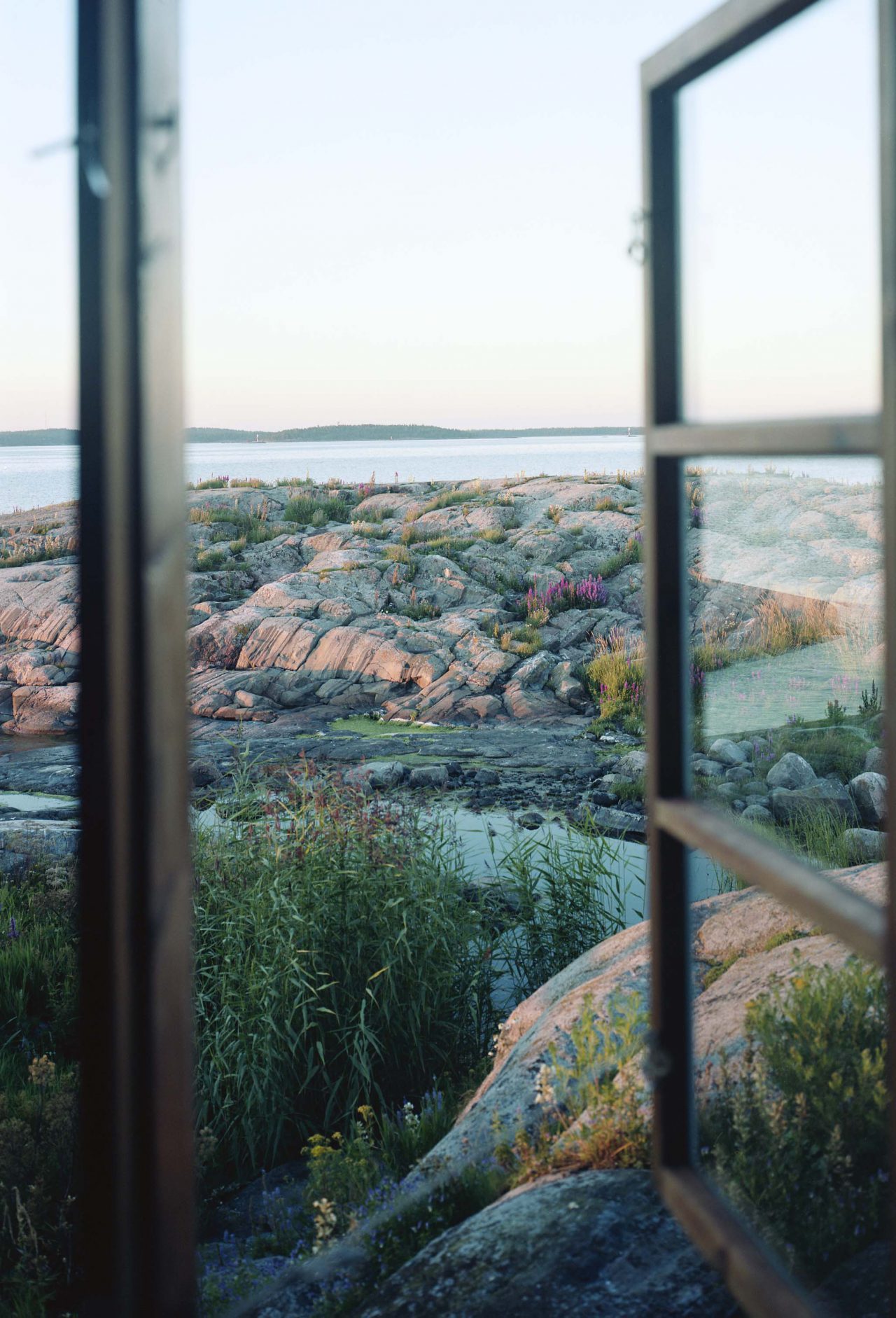
Northeastward
-
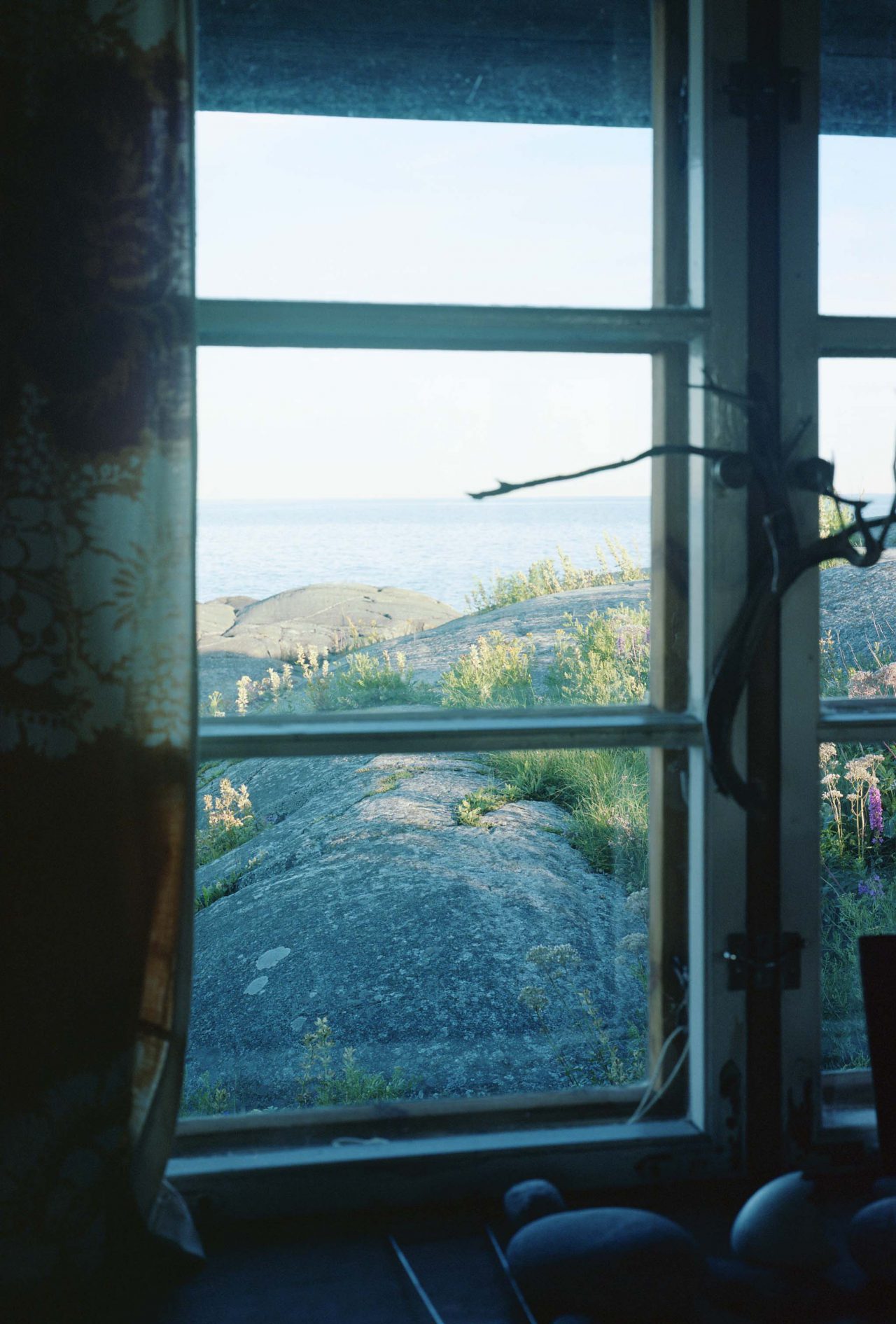
Northwestward
-
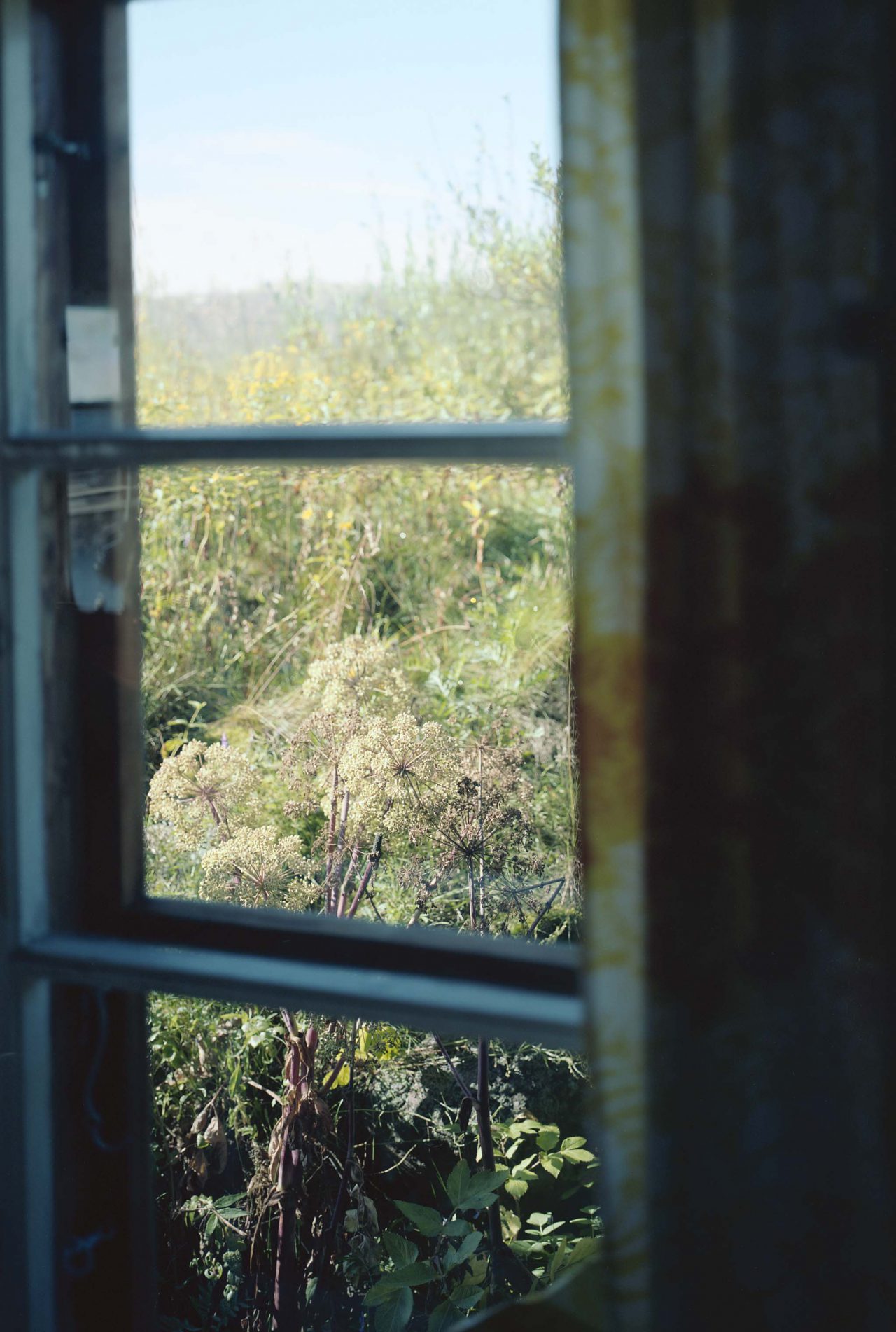
Southeastward
-
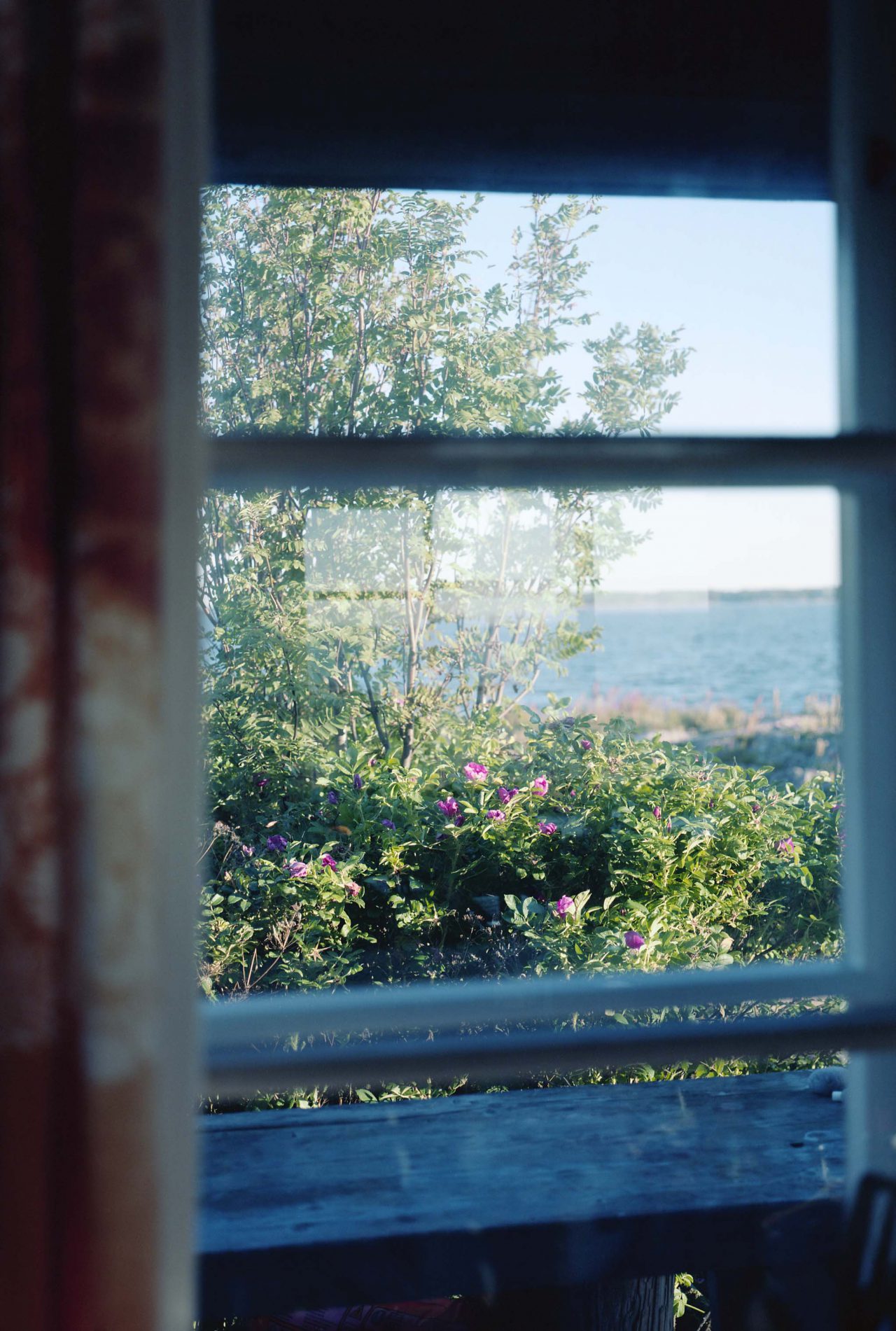
Southwestward
A song for windows is a photo collection born out of Homma’s own research since last year on the photography of windows conducted with the Window Research Institute.
It was published by a small publishing company, Libraryman, which is run by a single Swedish owner, Tony Cederteg.
In the photo collection are quotations from each of the 22 vignettes constituting Tove Jansson’s The Summer Book.
The Summer Book
1
“People don’t dive with their eyes shut.” -THE MORNING SWIM
2
The fire was still burning in the stove, and the flames flickered on the ceiling, where the boots were hung up to dry. She climbed down to the floor, which was very cold, and looked out through the window. – MOONLIGHT
3
Tiny clusters of flowers would open at exactly the same height above the ground and sway together in the wind, like inland meadows, and the whole island would be covered with a veil dipped in heat, hardly visible and gone in a week. Nothing could give a stronger impression of untouched wilderness. – THE MAGIC FOREST
4
They walked on and talked about burial at sea, and the long-tails sand in dyads and triads, farther and farther away. The neck of land out toward the point was completely transformed by the winter storms. There had never been anything but rocks out there, but now the whole shore was sand. – THE SCOLDER
5
From the southwest came a steady summer wind that whispered sleepily around the house and on across the island. She could hear the weather report on the radio inside the house. A corner of sunshine edged across the windowsill. – BERNICE
6
“Do you think all the angels wear dresses, so no one can tell what kind they are?”
“What a dumb question! You know they all wear dresses. But now listen carefully: if one of them wants to know for sure what kind another one is, he just flies under him and looks to see if he’s wearing pants.” - THE PASTURE
7
There is something very elegant about throwing the plates out the window after dinner, and about living in a house that is slowly sinking to its doom. -PLAYING VENICE
8
Grandmother sat down and edged into the canyon a little at a time until at last she dropped to the bottom and was all by herself in peace and quiet. She lit a cigarette and watched the barely visible swell. By and by, the boat appeared from behind the point. Papa was making a sweep around the reef to set out his nets. – DEAD CALM
9
In the morning, he walked into the house and stretched-front legs first, with his rear end up in the air-then he closed his eyes and sharpened his claws on the rocking chair, after which he jumped up on the bed and went to sleep. The cat’s whole being radiated calm superiority. – THE CAT
10
This jungle was very thick and tall and lived mostly on dead seaweed and rotten fish. It grew as high as possible, and where it stopped it was met by sallow, rowan, and alder branches that bent down as far as they could reach. Walking between them with your arms outstretched was like swimming. Bird-cherry and rowan, especially rowan, smell like cat piss when they’re in bloom. – THE CAVE
11
The grassy bank had given way, softly and treacherously, quite inexplicaably, and the forest-eating monster lay there in silence at an unnatural angle, a picture of thwarted force. – THE ROAD
12
Everything was salvaged, some by the right hands and some by the wrong, but nothing was simply lost. Along toward morning the makeshift fleet split up. The boats floated farther and farther apart, each one setting off by itself to its own home. By dawn, the sea was empty. The wind died. The rain stopped. A clear and lovely Midsummer morning arranged its colors in the sky, and it was very cold. – MIDSUMMER
13
More birds cried in various ways, and the darkness was filled with strange movements and sounds, the kind no one can trace or account for. The kind no one can even describe. – THE TENT
14
People who live on islands are always letting their eyes glide along the horizon. They see lines and curves of the familiar skerries, and the channel markers that have always stood in the same spots, and they are strengthened in their calm awareness that the view is clear and everything is in its place. – THE NEIGHBOR
15
The robe had survived various threats to its existence. There was the time some well-meaning relatives came out and, as a surprise, gave the island a good cleaning. They threw out a lot of things the family wanted, but, worst of all, they carried the bathrobe down to the water and let it float away. – THE ROBE
16
For a few weeks every year, there are flowers in every crack in the granite, and their colors are brighter than anywhere else in the whole country. But the poor people who live on the green islands in toward the mainland have to make do with ordinary gardens, where they put children to work pulling weeds and carrying water until they are bent with toil. A small island, on the other hand, takes care of itself. It drinks melting snow and spring rain and, finally, dew, and if there is a drought, the island waits for the next summer and grows it flowers then instead. The flowers are used to it, and wait quietly in their roots. There’s no need to feel sorry for the flowers, Grandmother said. – THE ENORMOUS PLASTIC SAUSAGE
17
A double row of lights came gliding in toward the island in a slow curve. – THE CROOKS
18
“To the final landscape of our old age, as summer fades. This is a fine moment. Silence settles around us, each of us wanders his own way, and yet we all meet by the sea in the peaceful sunset.” – THE VISITOR
19
Ever since the first time she trapped a spider in a matchbox in order to make it a pet, her summers had been full of caterpillars, tadpoles, worms, beetles, and similar uncompanionable creatures, whom she provided with everything they could want from life, including, eventually, their freedom. – OF ANGLEWORMS AND OTHERS
20
She looked out to sea and saw the horizon turn black. The blackness spread, and the water shivered in dread and expectation. It came closer. The wind reached the island in a high, sighing whisper and swept on by. It was quiet again. – SOPHIA’S STORM
21
One very hot day about noon, the midges started dancing above the tallest spruce tree on the island. Midges-not to be confused with mosquitoes-dance in vertical clouds and always in tempo. Millions and billions of microscopic midges rise and fall in perfect precision, singing stridently. – DAY OF DANGER
22
EVERY year, the bright Scandinavian summer nights fade away without anyone’s noticing. – AUGUST
Quoted by The Summer Book, Tove Jansson, 1974
A song for windows / Takashi Homma
Libraryman, 19 cm x 27 cm, 40 pages, 2016
Takashi Homma
Photographer. Born 1962 in Tokyo, Japan. Held his first solo museum exhibition, New Documentary, in three museums in Japan from 2011 to 2012. Has published numerous photography books, including Tanoshii shashin: Yoiko no tame no shashinshitsu (Tokyo: Heibonsha, 2009) and Tanoshii shashin 3: Wakushoppu-hen (Tokyo: Heibonsha, 2014). Currently a guest professor at the Tokyo Zokei University Graduate School.

